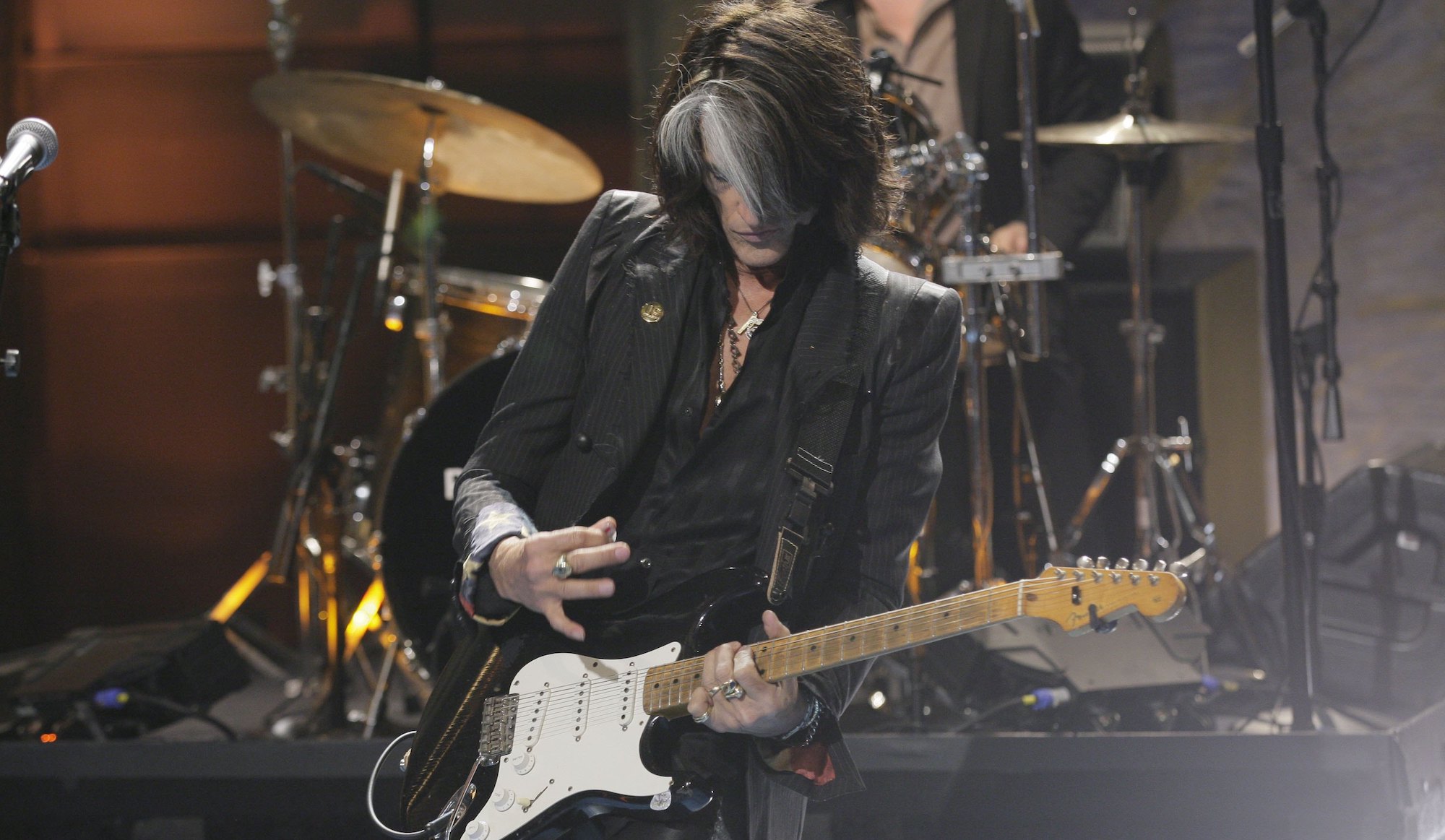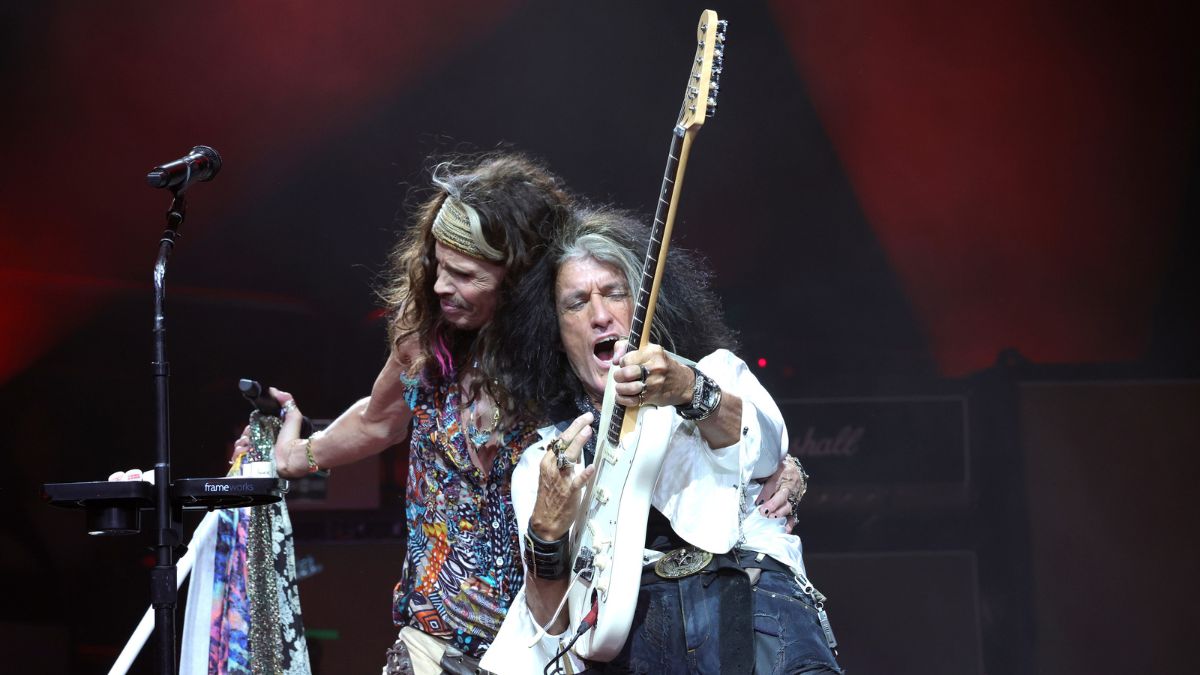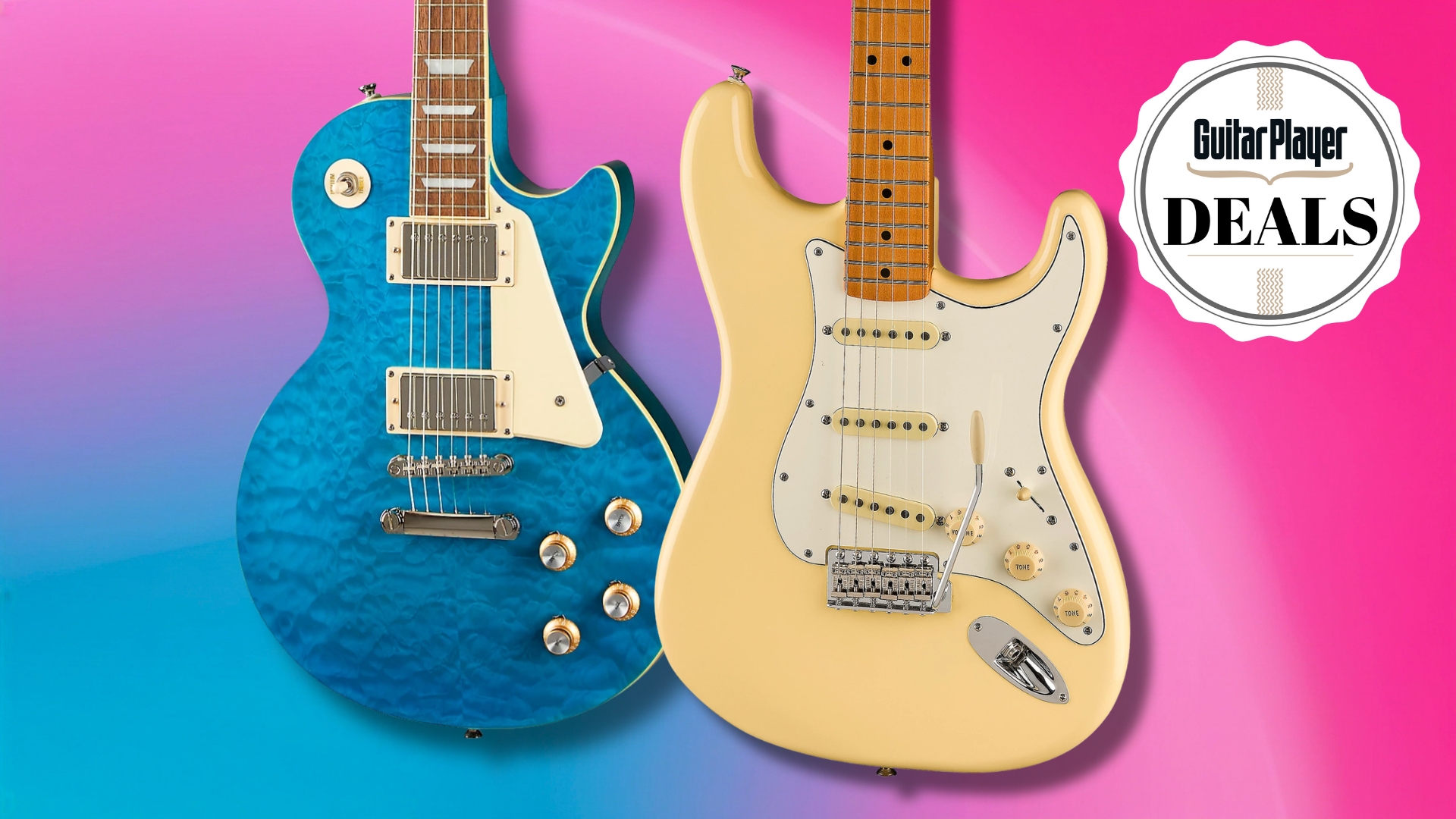“I’m a stone-cold Gibson man... but the guitar I miss the most from that era is the Strat I recorded Walk This Way with”: Joe Perry talks about the guitar that got away from him – and it’s not a Les Paul
When Joe Perry left Aerosmith in 1979, he wanted to distance himself from the band – and the guitars that defined his tenure with them – which meant that one beloved guitar regrettably slipped away

All the latest guitar news, interviews, lessons, reviews, deals and more, direct to your inbox!
You are now subscribed
Your newsletter sign-up was successful
When Aerosmith guitarist Joe Perry stepped away from the band in 1979, he wanted to draw a line in the sand. That meant severing ties with many of the guitars he’d created history with.
“I wanted to clear the decks and clear my head,” Perry says in the latest issue of Total Guitar. “I took most of my Aerosmith guitars, put them in road boxes, and left them there.”
That decision saw the guitarist, who would release three albums with the Joe Perry Project before returning to the band in 1984, lose access to many of those guitars. Amongst them was a prized Fender Stratocaster – the only guitar he regrets getting rid of.
“I really wasn’t into collecting guitars. At that point, I had a few Les Pauls, a few Juniors or Strats, but that was it,” he recalls. “Honestly, the guitar I miss the most from that era is the Strat I recorded Walk This Way with, which went the way of the wind when I left the band.”
Perry may call himself a “stone-cold Gibson man,” but Strats proved vital ingredients in shaping the band’s sound, especially in the studio.
“We liked the idea of having two different guitar sounds,” he says. “I always felt like we should sound like one of us was playing a Fender Stratocaster and the other was playing a Gibson Les Paul.

“I think a lot of people, when they think of us in those years, [think we're] playing Les Pauls,” he adds of the band’s ‘70s heyday, which began with 1975’s name-making Toys in the Attic and concluded with ‘77s Draw The Line.
All the latest guitar news, interviews, lessons, reviews, deals and more, direct to your inbox!
“But,” he adds, “I recorded a lot with Strats. I was definitely a stone-cold Gibson man, but I seemed to gravitate more toward Strats and that variety of tones. Plus you had the vibrato…I always felt like it was one more color on your paint palette.”
His Les Paul of choice was a ‘59 Burst with a chunky neck he “loved the thickness” of. It was a guitar that Slash said was “the coolest guitar I had ever seen,” and one he helped return to Perry after the latter reluctantly sold it in 1980 when money was tight.
Despite his long-term association with Les Pauls, it was a ‘50s Strat – the one that ultimately got away from him – paired with a Les Paul Junior that helped catapult the band to success with Walk This Way.
Writing for Guitar World in 2019, Chris Gill detailed the tonal magic of Perry’s Walk This Way guitars as a combination of a Les Paul Junior, his long-lost Strat, and a 60-watt Ampeg V-2 tube head.
His main rhythm track – hard-panned left, with Brad Whitford occupying the other end of the spectrum – featured a P-90 loaded double-cutaway Gibson Les Paul Junior.
The Les Paul Junior starred during the first of Perry’s two solos on the track, with the Strat stealing the show with the second.
Gill details how Perry “begins the second solo on the Strat’s bridge pickup, but starting at the outro’s fat, sustained note bends (around 2:45) switches to the Strat’s neck pickup.” At that moment he also “engages a ’70s Maestro FZ-1S Fuzz-Tone to further thicken the midrange and make the guitar ‘sound like an electric razor.’”
To read the full interview with Perry, which charts the gear and conversations that dictated his entire Aerosmith career, pick up issue 385 of Total Guitar at Magazines Direct.
A freelance writer with a penchant for music that gets weird, Phil is a regular contributor to Prog, Guitar World, and Total Guitar magazines and is especially keen on shining a light on unknown artists. Outside of the journalism realm, you can find him writing angular riffs in progressive metal band, Prognosis, in which he slings an 8-string Strandberg Boden Original, churning that low string through a variety of tunings. He's also a published author and is currently penning his debut novel which chucks fantasy, mythology and humanity into a great big melting pot.


